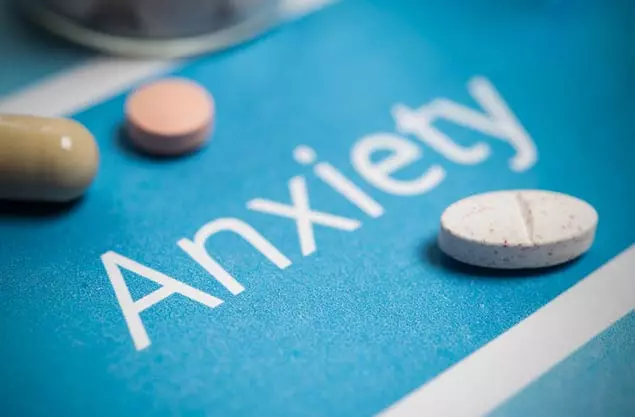Anxiety is a widespread mental health issue that impacts millions of individuals globally. It can take many different forms and significantly affect a person’s relationships, day-to-day activities, and general well-being. We will examine the signs, causes, and remedies for anxiety in this post in order to better comprehend and control it.
Anxiety Symptoms
Numerous physical, emotional, and behavioral signs are indicative of anxiety. The degree and length of these symptoms can differ, and they may make it difficult for a person to go about their daily activities normally. Typical signs of anxiousness include the following:
Excessive worry is defined as an inability to stop worrying about different areas of life, such as relationships, job, or health.
Physical Symptoms:
These can include headaches, nausea, shaking, sweating, elevated heart rate, and exhaustion.
Being restless is the inability to unwind or feeling tense.
Trouble Concentrating:
Anxiety or racing thoughts that make it difficult to concentrate on tasks or make judgments.
Being quickly agitated or irritated, especially over small matters, is known as irritability.
Sleep disturbances include having trouble getting to sleep, remaining asleep, or having restless, uncomfortable sleep.
Avoidance:
Steer clear of circumstances or endeavors that can exacerbate anxiety and cause social disengagement or withdrawal.
It’s crucial to remember that anxiety attacks are common and should not be avoided. On the other hand, an anxiety disorder can be indicated if these symptoms become unbearable, chronic, or interfere with day-to-day functioning.
Reasons for Uncertainty
There are several genetic, environmental, and psychological factors that might contribute to anxiety disorders. Even though each person’s specific cause of anxiety is unique, the following common elements frequently play a role in the development of anxiety disorders:
Genetics:
Anxiety disorders are more likely to run in families where anxiety disorders have already occurred, indicating a hereditary predisposition to the problem.
Brain Chemistry:
Anxiety can be exacerbated by dysregulation of neurotransmitters like norepinephrine, serotonin, and dopamine.
Environmental Stressors:
Anxiety symptoms can be brought on by or made worse by traumatic experiences, significant life transitions, chronic stress, or continual exposure to stressful situations.
Personality features:
Anxiety may be more likely to develop in people who exhibit certain personality features, such as perfectionism, low self-esteem, or an inclination to be extremely sensitive to criticism.
Medical diseases:
Anxiety disorders can occasionally develop or worsen in conjunction with other medical diseases, hormonal imbalances, or chronic illnesses.
Substance Abuse:
When used excessively or in conjunction with other stressors, alcohol, narcotics, and certain prescriptions can exacerbate anxiety symptoms or cause anxiety attacks.
Knowing the underlying causes of anxiety can assist patients and medical practitioners in creating individualized treatment programs that effectively address the core problems.
Ways to Control Your Anxiety
A combination of self-care techniques, counseling, medication, and lifestyle changes are used to manage anxiety. The following are some practical methods for reducing anxiety:
Therapy:
For the treatment of anxiety disorders, cognitive-behavioral therapy (CBT), exposure therapy, and mindfulness-based therapies are frequently utilized. With the use of these therapeutic approaches, people can better control their anxiety by learning relaxation techniques, coping skills, and how to recognize and challenge negative thought patterns.
Medication:
To treat anxiety symptoms, doctors frequently give beta-blockers, antidepressants, and anti-anxiety drugs. These drugs can lessen excessive worrying, balance the brain chemistry, and ease the physical signs of anxiety. Collaborating closely with a healthcare provider is crucial in determining the appropriate medication and dose for your needs.
Lifestyle Adjustments:
Making good lifestyle choices can be very helpful in controlling anxiety. Frequent exercise, enough sleep, a healthy diet, and stress-reduction methods like yoga, meditation, or deep breathing exercises can all help lessen the symptoms of anxiety and enhance general wellbeing.
Avoid Triggers:
Whenever feasible, try to identify and stay away from circumstances or triggers that make your anxiety symptoms worse. Establishing boundaries, assigning responsibilities, or honing your assertiveness techniques can help you prioritize self-care and voice your demands.
Social Support:
Establish a solid network of friends, family, or support organizations that are there to provide consolation, empathy, and useful help when things go tough. Making connections with people who have gone through comparable experiences might help to validate one another and lessen feelings of loneliness.
Mindfulness and Relaxation Techniques:
To lower stress and foster calmness, incorporate mindfulness and relaxation techniques into your everyday routine. Techniques to assist calm the mind and encourage relaxation include progressive muscle relaxation, guided visualization, deep breathing techniques, and meditation.
Limit Substance Use:
Reduce or stay away from recreational drugs, alcohol, and caffeine as these might worsen anxiety symptoms and reduce the efficacy of treatment. To more successfully manage stress and anxiety, choose healthy coping strategies and relaxation practices.
In summary
Anxiety is a difficult and complicated mental illness that can have a big effect on a person’s quality of life. Through gaining knowledge on the signs, origins, and remedies for proficient anxiety management, people can proactively tackle their symptoms and enhance their general welfare. People can overcome anxiety and have happy, balanced lives by using a variety of effective tactics, which might include therapy, medication, lifestyle changes, or a mix of treatments. Recall that getting help from medical professionals, creating a solid support system, and placing self-care first are all crucial to effectively managing anxiety. It is possible to recover control over anxiety and a sense of stability and serenity with commitment, tolerance, and persistence.
